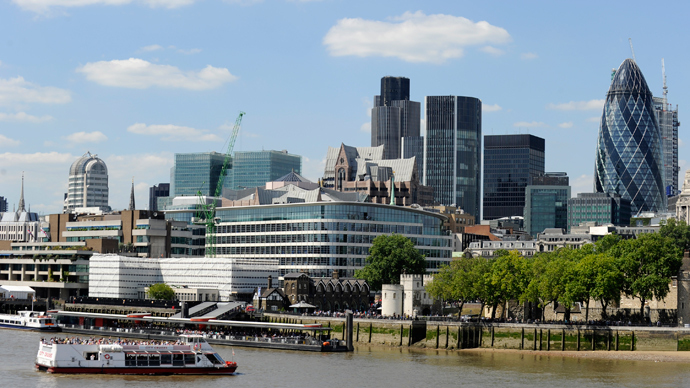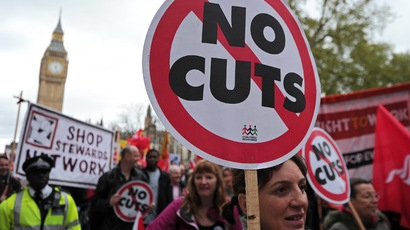UK shadow govt eyes reintroducing 50% tax rate for top earners

Shadow Chancellor Ed Balls says Labour will reintroduce the 50 percent tax rate for people earning over £150,000. This comes as part of an election vow, together with promises to balance the government's books and to clear the budget deficit.
A promise to bring back the tax on bank bonuses and reduce
pension tax relief for the highest earners came in a speech to
the Fabian Society Balls delivered on Saturday. However, he
admitted that these measures would not be enough to balance the
books.
“And when the deficit is still high, when tough times are set
to last well into next parliament, when for ordinary families
their real incomes are falling and taxes have risen, it cannot be
right for David Cameron and George Osborne to have chosen to give
the richest people in the country a huge tax cut,” he said.
The last Labour government, under Gordon Brown, raised the upper
tax band from 40% to 50% in response to the recession in 2010,
but the coalition cut it back to 45% in April 2013.
Even if Labour significantly raises taxes they will still have to
adopt day-to-day spending cuts across government departments
similar to those being carried out by the current chancellor,
George Osborne.
Both Ed Balls and the Labour leader, Ed Miliband, face a daunting
task trying to persuade voters that they will be tough on
government spending and that they have a decent economic plan for
a sustained recovery. Balls actually promised to deliver a budget
surplus by 2020.
Privately, Party strategists are concerned that voters are
skeptical of Labour’s economic message.
The Conservatives have said that they plan to bring the national
account into a surplus by 2018-2019 by further reducing public
spending as a proportion of national income; Osborne has already
highlighted the need for an additional £25 billion of cuts for
2016-2017.
Balls’s plan makes it possible for Labour to eradicate the
deficit in the final year of the parliament, a year later than
Osborne’s plan while differentiating itself from the Tories by
introducing higher capital spending, higher taxes and fewer cuts
to welfare.
“We will get the current budget into surplus as soon as
possible in the next parliament. How fast we can go will depend
on the state of the economy and public finances we inherit,”
Mr. Balls said.
Labour is trying to appeal to middle class voters, many of whom
have seen their living standards plummet since the financial
crisis of 2008, followed by the sweeping cuts of the coalition.
“The current cost-of-living crisis is not just about people
on tax credits, zero hour contracts and the minimum wage. It’s
also about millions of middle-class families who never thought
that life would be such a struggle,” said the shadow
chancellor.














